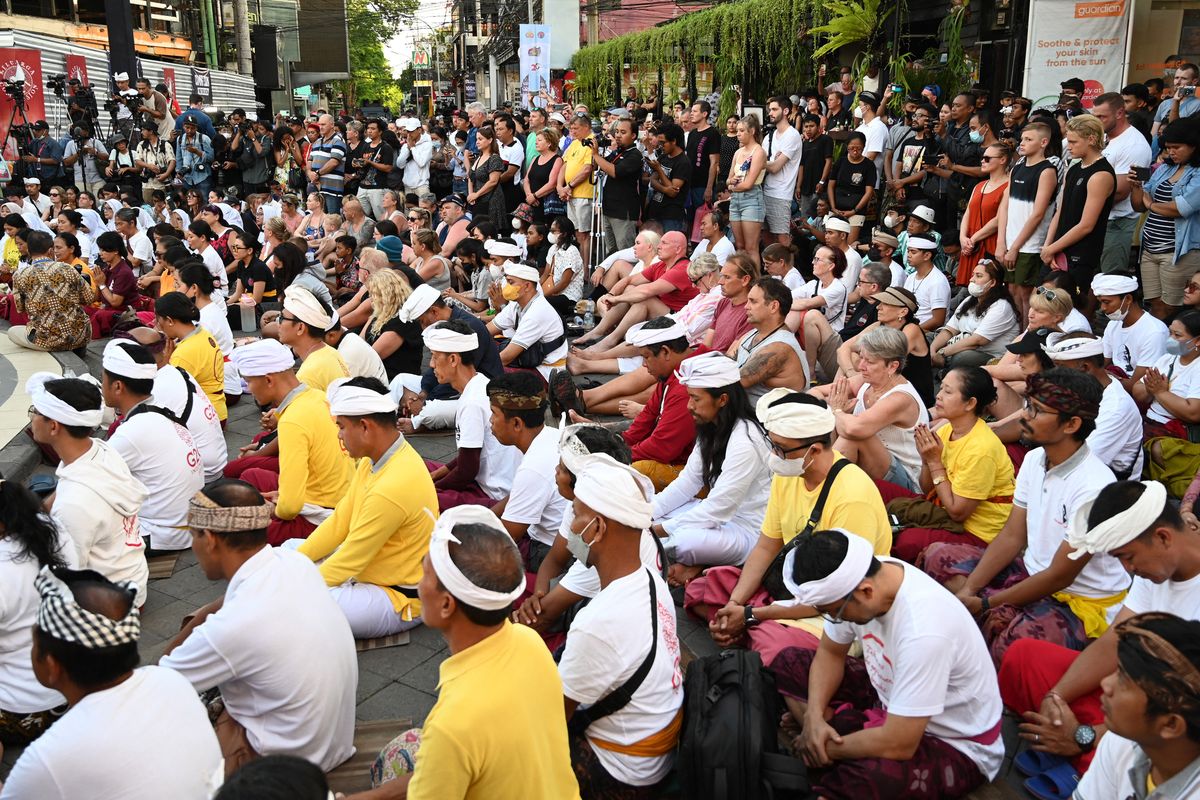Mourners Mark 20th Anniversary of Indonesia's Bali Bombings

Relatives and survivors held a moment of silence before laying flowers and wreaths in the consulate's memorial garden.
In Canberra, Australian Foreign Minister Penny Wong attended a memorial ceremony with Indonesia's ambassador Siswo Pramono.
"We recommit to the ongoing work shared by Australia and Indonesia to counter the scourge of violent extremism," Albanese and Wong said in a joint statement.
Vigils continued throughout the day and the Australian T20 cricket team held a minute's silence before playing England in Canberra on Wednesday evening.
Indonesia, the world's biggest Muslim-majority nation, has long struggled with Islamist militancy.
Local militant group Jemaah Islamiyah (JI), linked to Al-Qaeda, was blamed for the 2002 bombings.
All the leading perpetrators were either executed, killed by police, or jailed.
But the Indonesian government is considering an early release for Bali bombmaker Umar Patek, who has only served half of his 20-year sentence.
Also read: Suicide Bomb Hits Palm Sunday Mass in Indonesias South Sulawesi
Jakarta held off freeing him after angering Australia and the victims' relatives, who say his pending release has caused fresh trauma before the anniversary.
"I would be very angry and disappointed," 55-year-old survivor I Dewa Ketut Rudita Widia Putra told AFP.
Survivors and relatives of the dead are still trying to come to terms with the bomb blasts that killed scores at Sari nightclub and Paddy's Bar.
"I'm still feeling the trauma. Until today, I still don't have the bravery to go to the bombing sites," said Putra.
Paul Yeo's brother Gerard was killed, alongside five other members of the Coogee Dolphins rugby league team.
"I was asked to identify him. My mind was torn between not knowing if what I was about to see would haunt me forever, or was just privileged to see you one last time," Yeo said at the memorial.































